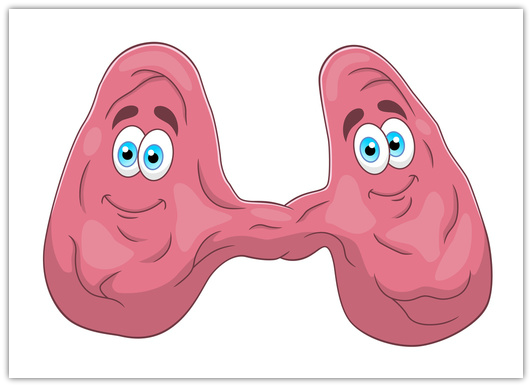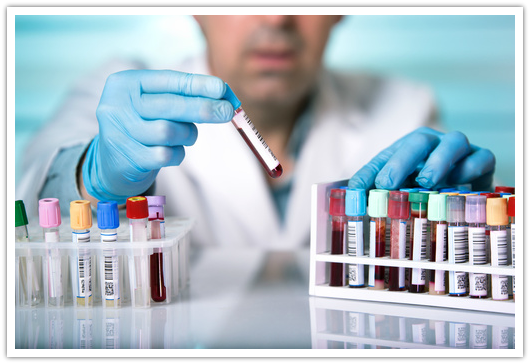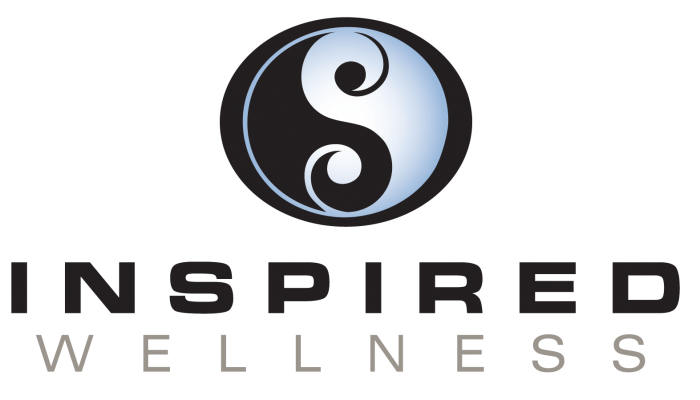Series by Christina Sanghera
Last week I shared part one of this series that details how I got to the diagnosis of thyroid disease. If you missed that, be sure to read it here before diving in to this post.
In part two I’m going to focus on these two things:
- The diagnosis (and what the heck it means)
- The treatment options and labs you’ll want to get
Generally, those who are given the stamp of “thyroid disease” had gone to the doctor because of the various telltale symptoms that crept slowly into their life:
- Brain fog
- Super dry scalp/skin
- Mood swings
- Hair loss
- Weight gain (sometimes rapid, sometimes gradual)
- Extremely low energy
By the time you get to the doctor and do your blood work, if you’re diagnosed with a thyroid condition it will likely be one of the three scenarios below:
- You’ll be told you have what’s called “sub-clinical hypothyroidism”. This usually means you have numbers that are borderline high but don’t technically fall within the clinical treatment guidelines. With a TSH of 3.6 at the time of diagnosis (more on the terminology further down), this is where I fell on the spectrum at the time, and I’m very thankful for my doctor who went by more than just labs and also cared how I was feeling. Always remember: just because your numbers are “in range” doesn’t mean they are what’s optimal for you. That takes time to figure out and play with. Keep in mind most medical organizations stop at 4.5 or 5 for TSH with regards to hypothyroidism, for example, but the American Association of Clinical Endocrinologists recommends a TSH no greater than 3.
- You’ll be told you have what’s called “primary hypothyroidism” which basically means your numbers are elevated enough even with conventional lab guidelines to warrant a diagnosis of hypothyroidism. This generally means your thyroid itself is the source of the problem even though you likely started as “sub-clinical” and then it progressed.
- You may be told you have what’s called “tertiary” or “secondary” hypothyroidism which means the problem could likely be with your hypothalamus or or pituitary gland. In this series the focus will be on sub-clinical and primary hypothyroidism.
So what does this all mean?
The causes of both sub-clinical and primary hypothyroidism are generally one in the same. This means that instead of just taking a pill (which I’m not opposed to, but it’s one piece of a BIG puzzle), you’ll want to try and uncover how to stop the progression of whatever it is that brought you here.
For example, did you know that over 95% of thyroid patients actually have something called Hashimotos, an autoimmune disease where antibodies attack your thyroid gland and you slowly lose thyroid function over the years? The crazy part? They are rarely actually tested for it when they go in for thyroid blood work because the “treatment would be the same“. Not so. This is what I was eventually diagnosed with after being persistent. Why? Because it’s extremely important to know if your body is waging an all-out autoimmune war on your thyroid!! To give you an idea of the severity, the scale for what’s called TPO antibodies (more on those below) goes to 30-ish. My antibodies at the time were over 1,500. Clearly, inflammation was at an all-time high in my body and it was only a matter of time before my thyroid starting to give out (which it eventually did).
Keep in mind, too, that Hashimotos can be responsible for both sub-clinical and primary hypothyroidism because one generally leads to the other, eventually. In the grand scheme of things, it doesn’t really matter which of those two labels you have. If you feel crappy and your blood work is not optimal for YOU personally, you should push to be treated until your symptoms fade and then you can maintain your new level of awesomness.
Repeat after me: you are not just a set of lab numbers. The labs are helpful, but equally important is how you FEEL. You are a PERSON with FEELINGS and SYMPTOMS that should not be ignored. Is it possible some of those symptoms have nothing to do with the thyroid? Sure. But that’s where a good doctor can help you walk that path of recovery and find what works so you can get back to feeling badass.
The Treatment Options + Labs
>>>Synthetic T4 Only
In Western medicine, the conventional treatment for thyroid issues is with synthetic T4 called levothyroxine. Here’s a common story:
Patient is given a prescription for T4, feeling like a weight has been lifted off their shoulders and now they can finally get back to being themselves. They start their dose and get excited for what’s to come in the next month or so (it takes around 4-6 weeks to see how the medication is working in your system). Soon, they realize they don’t feel any better and may even feel worse. They start to feel discouraged and go to their doctor, who tells them that their labs are now “normal” so the symptoms must be due to something else.
Does this sound familiar? If so, you’re not alone. The problem lies in the blood test (or two) they had you undergo that demonstrates only one part of the overall picture: TSH and Free T4 (sometimes they don’t even do “Free” and do just “Total” which doesn’t demonstrate how much thyroid hormone is actually circulating – i.e. what’s metabolically active). A lot of people, for whatever reasons, have trouble converting T4 to the active T3 thyroid hormone, for example. So if all you’re getting is T4, that’s like pushing down on the gas pedal of a car that’s in neutral.
Now, this won’t be the case for everyone, but for the purpose of this series which is aimed at those who are still suffering despite having been “treated” (or even if you haven’t been formally diagnosed), it’s important to note. Also, watch out for the unnecessary fillers in a lot of the synthetic T4 medications – they often contain artificial dyes, sulfates, parabens and more. If you go the synthetic route, you might talk to your doctor about something called a compounding pharmacy so the fillers can be controlled.
>>>Combo of T4 + T3 (Synthetic or Natural)
For many, myself included, who don’t feel well on conventional T4 only treatment, a combination of T4 AND T3 has been proven very helpful. Click here for one of my favorite resources on thyroid medications by Dr. Izabella Wentz. She provides a thorough and honest review of the various types of medications on the market. My favorite quote from this article:
“Thyroid hormone therapy should be individualized with the patient in mind.”
I could not agree more!
>>>Other Treatments/Lifestyle Factors
The decision to take thyroid medication is a personal one. You need to take into account your thyroid’s current ability to maintain itself without help. This will usually come down to how much damage has been done, alternative treatment options you could try first (example: herbal tinctures from a Naturopathic Doctor), other potential factors such as hormonal imbalance and vitamin/mineral deficiencies etc. Still, there are important lifestyle factors to keep in mind that will help immensely on your journey.
Part three of this series will focus on the specific lifestyle changes you can try correcting before getting on medication or before getting on a dose that’s higher than where you’re comfortable. These things will have a profound impact on the function of your thyroid regardless if you are currently taking or plan to take thyroid hormone, so stay tuned!
Top Labs Every Thyroid Patient Should Get
TSH – Did you know that “Thyroid Stimulating Hormone”, TSH for short, is actually a pituitary hormone? This is why it’s so important to get additional testing. For example, the TSH reading can be “normal” when someone is actually borderline or overt hypothyroid.
Free T4 – About 90% of the thyroid hormone produced in your body is T4. Think of T4 as a stepping stone for T3.
Free T3 – When T4 gets to body tissues and organs, it is converted to T3. T3 is responsible for a host of bodily processes, in particular your metabolism. This is why it’s important to know if you’re not converting T4 to T3 efficiently.
TPO Antibodies and TG Antibodies – AKA “Thyroperoxidase Antibodies” and “Thyroglublin Antibodies”, these are the tests used to help determine if you have Hashimotos Thyroiditis. Despite conventional beliefs, antibody number DOES matter. The presence of the antibodies themselves and the autoimmune response in your body can, themselves, cause symptoms and it’s important to control inflammation. As we know, inflammation is the precursor to disease and only makes it worse.
I cannot stress how important it is to understand that you play a central role in the improvement of your thyroid. It is NOT okay to be disrespected, blown off or made to feel like you are a “problem patient” or “high maintenance” simply because you want answers and want to feel better. Don’t just give in if you KNOW deep down something still isn’t right.
You deserve to thrive, PERIOD, and it is 100% okay to fire your doctor and find someone who will work WITH you instead of dictate to you. You want to find someone who will address your concerns and work WITH you to find a solution. It is your body and you get to live in it everyday … so don’t let someone who has a 10-20 minute meeting with you a few times per year completely discredit your obvious symptoms.
I searched for quite some time before I finally found someone willing to address my concerns and who has helped TREMENDOUSLY on this journey. She is what’s called a Naturopathic Doctor. Naturopathic/Eastern medicine focuses on the body as a whole and looks to uncover root causes rather than simply medicate.
For me, this has worked out really well. I’m not saying there aren’t amazing doctors in traditional medicine; ultimately, the path you choose will come down to what feels right – always trust your gut!! Just remember: you don’t have to stay “stuck” in a doctor/patient relationship that’s just not working out.
Stay tuned for part three where I dive into specific lifestyle changes you can make NOW to start thriving again.
Sincerely,
Christina Sanghera
Disclaimer: I am not a medical professional nor do I claim to be – I encourage you to consult with your doctor – one that you trust and have a good relationship with – when it comes to changes in your treatment plan.
About Inspired Wellness
We are a wellness movement aimed at cultivating greatness in all areas of life. We believe that everything is connected and that having the body of your dreams shouldn’t come at the price of your mental and emotional health. You CAN have it all; you just need some determination, grit and the desire to truly change your life!
Catch us locally in sunny Sacramento CA inspiring lives at our wellness center with fitness, nutrition and lifestyle programs, or online doing the same thing with our new online training site + community coming soon!
Want more content like this delivered straight to your inbox? Get a weekly dose of inspiration by subscribing here.
Let’s get social! Come connect with us in these places:
Free Wellness Group: facebook.com/groups/iwagaccgroup
Facebook: facebook.com/theinspiredwellness
Instagram: instagram.com/inspirewellness
References:






